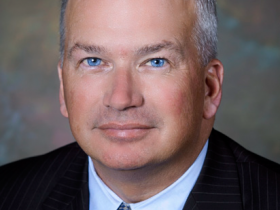The Lobbyist Law Nobody Likes
Except the WMC business lobby and Realtors Association, who are glad Walker signed it.
It’s sometimes said that a legislative outcome criticized by opposing sides has struck the perfect balance. By that standard, Senate Bill 655 is a triumph.
The omnibus campaign financing bill, which passed both houses of the state Legislature and was signed into law by Gov. Scott Walker on March 27, has been assailed for both its process and its substance. Meanwhile, some lament that this tsunami of dissent led to it being watered down.
“I’m angry about it,” says Madison attorney Mike Wittenwyler, who testified in favor of the bill on behalf of the Association of Wisconsin Lobbyists. “They had a wonderful opportunity to fix an injustice in state law, and they didn’t do it.”
The bill, sponsored by Senate Majority Leader Scott Fitzgerald, R-Juneau, contains a raft of provisions, most of which are not controversial. For instance, it would spare campaigns that submit electronic filings from also having to submit paper reports.
But the bill as introduced would also have let lobbyists “furnish” contributions from others to state political campaigns at any time. And it would move up the limited time frame during which lobbyists can make direct donations, to April 15 instead of June 1 in election years. During the last such window, in 2012, the Assembly’s Republican leaders began asking lobbyists to pay into a fund for targeted races.
First came the uproar over process. SB 655 was introduced by Republicans late in the day on Monday, March 3, and set for a Senate hearing on March 5. So was a bill to explicitly waive disclosure rules for “issue ads” that do not expressly tell people how to vote, consistent with current policy.
Both bills were also roundly ripped for their substance. “We need these changes like we need two more months of winter,” cracked Mike McCabe of the Wisconsin Democracy Campaign, a nonpartisan elections watchdog.
The bill to codify the exemption for “issue ad” groups stalled in committee after it drew fire from Wisconsin Right to Life. The GOP-friendly group testified that passing a new law could render its court challenge of the state’s current policy “null and void.”
But SB 655 fared better, despite also being attacked.
“No one outside of the Capitol Square in Madison has been clamoring for increasing the ability of lobbyists to make campaign contributions to legislators,” declared Jay Heck of Common Cause in Wisconsin.
Wittenwyler, who advises lobbyists and interest groups, argues that the donation date change merely reflects that the state has moved up its fall primary from mid-September to mid-August. And he says the rule against furnishing contributions is unfair to small interest groups, where those who would do so cannot because they are also lobbyists.
But, as Capital Times reporter Jack Craver noted, small interest groups are conspicuous in their near absence from the bill’s registered supporters, which include the mega-group Wisconsin Manufacturers & Commerce. And lobbyist Gary Goyke, a former Democratic lawmaker, says “the law on furnishing has not been a problem” for any of the 18 mostly small interest groups he represents.
In the end, the state Senate axed the furnishing provision. Or, as Wittenwyler puts it, “We’re going to continue to screw small organizations.”
Heck is also unhappy with the final product, which he urged Walker to veto. He says moving up the donation period attests to lobbyists’ undue influence and lawmakers’ growing disregard for how their actions appear to the public. He blames partisan redistricting: “They don’t care because most of them have utterly safe seats.”
The press release from Walker’s office announcing his signing SB 655 made no mention of lobbyist contributions; it said the bill would “modernize” campaign finance laws.
Bill Lueders is the Money and Politics Project director at the Wisconsin Center for Investigative Journalism (www.WisconsinWatch.org). The Center produces the project in partnership with MapLight.
The Center collaborates with Wisconsin Public Radio, Wisconsin Public Television, other news media and the UW-Madison School of Journalism and Mass Communication. All works created, published, posted or disseminated by the Center do not necessarily reflect the views or opinions of UW-Madison or any of its affiliates.
-
Wisconsin’s Medicaid Postpartum Protection Lags Most States
 Feb 27th, 2024 by Rachel Hale
Feb 27th, 2024 by Rachel Hale
-
Wisconsin Has A “Smart Growth” Law To Encourage Housing, But No One Is Enforcing It
 Dec 22nd, 2023 by Jonmaesha Beltran
Dec 22nd, 2023 by Jonmaesha Beltran
-
Milwaukee County Is Funding Affordable Housing In Suburbs
 Dec 21st, 2023 by Jonmaesha Beltran
Dec 21st, 2023 by Jonmaesha Beltran

















